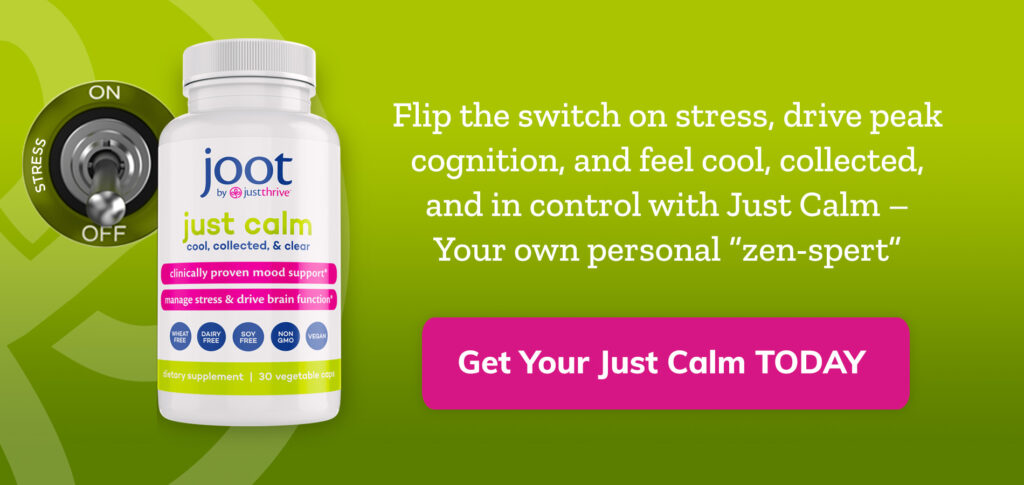Table of Contents[Hide][Show]
What Causes Brain Fog?+−
- 1. Lack of Sleep Leads to Decreased Concentration
- 2. Stress Results in Mental Fatigue
- 3. Unhealthy Diet Affects Gut Health & Brain Function
- What is the Gut-Brain Axis?
- 4. Environmental Toxins Are Also Harmful
- 5. Hormonal Changes Can Impair Cognition
- 6. A Sedentary Lifestyle Affects Memory
- 7. Side-Effects of Medications and Treatments
- 8. Medical Conditions May Be Behind Persistent Brain Fog
- What Are the Symptoms of Brain Fog?
- What Does Brain Fog Do To You?
How to Get Rid of Brain Fog and Avoid It+−
- 1. Clean Up Your Diet
- 2. Master Basic Healthy Habits To Combat Cognitive Decline
- 3. Learn New Things to Challenge Your Mind
- 4. Write It Down To Build Stronger Memory Connections
- 5. Read To Improve Brain Concentration
- 6. Get Physical to Bolster the Hippocampus
- 7. Pump Up Your Workout To Challenge Your Mind
- Park Over Gym: 10 Strengthening Moves You Can Do Amidst Nature
- 8. Listen to Music For Mental Clarity
- 9. Laugh Out Loud to Spark Creativity in the Brain
- 10. Enjoy Antioxidants To Improve Short Term Memory
- 11. Limit Exposure to Toxins as Much as Possible
- 12 Tips For Detoxing the Body
- 12. Get Your Vitamin E To Prevent Cognitive Decline
- 13. Perk Up To Sharpen Focus
- 14. Go Green To Slow Aging in the Brain
- 15. Load Up on Omega-3 Fatty Acids To Boost Brain Power
- 16. Download Apps for Cognitive Improvement
- 17. Download Apps for Memory Improvement
- 18. Manage Your Stress For Mental Clarity
- 19. Zen Out To Reduce Stress Further
- Four Meditations That Will Blow Your Mind
- 20. Detox To Reduce Brain Fog
- 21. Take the Right Amount of Medication For Mental Clarity
- 10 Best Polyphenol Foods And How To Get Their Full Benefit
- Ride A Bike! Why Cycling Is Great Exercise and Good Fun
- How to Practice Mindfulness
Brain fog is a general term used to refer to cognitive dysfunctions in memory, learning, and focus, which results in disorientation, confusion, and fatigue. It is a symptom of several medical conditions, but it is not considered a medical condition itself.
What Causes Brain Fog?
There are several medical conditions that can cause brain fog. Always keep in mind that you need to identify the root of the problem so you can properly treat it.
Here are the common causes of brain fog you should watch out for:
1. Lack of Sleep Leads to Decreased Concentration
Less than 8 hours of sleep each night and poor sleep quality can keep you from experiencing optimal brain function.
Lack of sleep can also lessen your level of concentration which leads to unfocused and hazy thoughts.
Getting enough sleep, at least 8 hours worth, will keep your mental clarity in top shape. Naps can also be extremely beneficial. Science has proven that a 20 minute nap during the middle of the day improves mental performance by 36%. So relax, take a nap, and you’ll perform better afterwards.
2. Stress Results in Mental Fatigue
When you are constantly stressed, you also experience mental fatigue. This exhaustion makes it more difficult to reason, think, and focus.
Aside from this, too much stress can also weaken your immune system and even trigger depression. That’s why being conscious of maintaining a healthy stress level is a must for overall health and wellness.
3. Unhealthy Diet Affects Gut Health & Brain Function
Surprisingly, symptoms of brain fog and other neurological problems often start in the gut. Eating a diet of processed food containing additives, pesticides, herbicides and other toxins often leads to intestinal permeability, better known as leaky gut which causes a cascade of inflammatory changes affecting the entire body, including the brain. Most chronic disease, especially auto-immune disease, is related to leaky gut.
In addition, consuming food you are sensitive or allergic to can also cause brain fog. It is better to avoid these foods in your diet to maintain good physical and mental health. Take a Vitamin B12 supplement as it plays an important role in brain health and development.
Related
What is the Gut-Brain Axis?
Learn how the connection between the gut and brain—the gut-brain axis—influences your mental and digestive health and how you can support both simultaneously through the foods you consume.
4. Environmental Toxins Are Also Harmful
Besides toxins we get from food and beverages, we are also affected by polluted air (including off-gassing from toxic things in our homes), toxic substances absorbed through the skin from personal care products and cleaning products and from stress.
5. Hormonal Changes Can Impair Cognition
The hormonal changes women experience during pregnancy and menopause can cause brain fog as well. During pregnancy, women’s estrogen and progesterone levels increase. This hormonal change can cause temporary cognitive impairment.
When menopause kicks in, a woman’s estrogen level drops. This results in poor concentration and forgetfulness.
6. A Sedentary Lifestyle Affects Memory
In a recent study, researchers found that sedentary behavior can affect thinning in the parts of the brain essential to memory formation. A great way to combat a sedentary lifestyle is through exercise. It can boost your physical health and your learning and memory.
7. Side-Effects of Medications and Treatments
If you are taking medication or undergoing treatments and you experience brain fog, tell your doctor about it. This may be a side effect that needs extra attention. Your doctor may prescribe a lower dose or advise you to switch to another medicine to alleviate the side effects.
8. Medical Conditions May Be Behind Persistent Brain Fog
As mentioned earlier, brain fog can be an indication that you have an underlying medical condition. If you experience persistent brain fog, you may want to get checked for any of these conditions:
- Chronic fatigue syndrome
- Depression
- Alzheimer’s disease
- Autoimmune diseases
- Anemia
- Diabetes
- Hypothyroidism
- Dehydration
- Fibromyalgia
- Migraine
- Sjögren syndrome
What Are the Symptoms of Brain Fog?
People who suffer from brain fog typically experience the following symptoms:
- Lack of concentration
- Lack of focus
- Disorientation and confusion
- Hazy and slow thinking
- Memory problems
- Poor spatial awareness
Note that these symptoms can vary in intensity. You may experience them daily or in even more frequent intervals.
All these affect your ability to process information and think critically. In turn, they keep you from making sound decisions and solving problems. When unchecked and allowed to persist, these brain fog symptoms can eventually lead to anxiety and depression.
What Does Brain Fog Do To You?
Brain fog can affect your cognitive functions. These include experiencing dysfunction in the following:
- Memory retention
- Processing of information
- Calculation ability
- Ability to understand language
- Spatial and visual skills
- Organization, planning, and problem-solving abilities
Impairment of these brain functions can cause mental fatigue, as you will have trouble with comprehension, retention, and focus.
How to Get Rid of Brain Fog and Avoid It
As we age, our bodies deteriorate and our brains are no exception. While a regular physical activity routine helps keep us healthy and agile, exercising our brain can keep us fit mentally.
Here are a few small things you can do on a daily basis to get rid of brain fog and avoid it altogether:
1. Clean Up Your Diet
The first step is to clean up our diet. We need to eat real, whole food, mostly plants and preferably organic (there are some foods that are low in pesticide residues and safe to eat non-organic). We need to stop eating gluten, which is a big contributor to leaky gut. We need to drastically reduce our intake of sugar which is pro-inflammatory and replace it with a safe sweetener like stevia or xylitol (non-GMO); artificial sweeteners are toxic too. Consider an elimination diet to identify other triggers for leaky gut such as dairy.
2. Master Basic Healthy Habits To Combat Cognitive Decline
You can combat cognitive decline and even decrease your susceptibility to dementia by practicing basic healthy habits. These include eating a healthy diet as mentioned above, getting plenty of good sleep, and limiting or eliminating smoking, drinking, and drugs.
3. Learn New Things to Challenge Your Mind
Your brain cells tend to go dormant when they are not used. While your job may require critical thinking, taking up a hobby or starting a project forces you to practice an unfamiliar skill. This will challenge your mind and keep it limber.
4. Write It Down To Build Stronger Memory Connections
When you come across new information you want to retain, repeat it out loud or write it down to build stronger memory connections.
5. Read To Improve Brain Concentration
Maintain an active reading schedule; this helps improve your concentration. Not only that reading can be relaxing and help to combat stress.
6. Get Physical to Bolster the Hippocampus
The hippocampus in the brain controls our memory system. A study at the University of Illinois at Urbana-Champaign found that a year of aerobics can increase the size of an adult hippocampus up to 2%.
Your brain also needs oxygen to function properly. The more physically active you are the better chance you have of keeping your brain supplied with oxygen. Pick an activity you like and get moving every day.
Lastly, regular exercise can also help you avoid developing a sedentary lifestyle, which can lead to brain fog and other health issues.
7. Pump Up Your Workout To Challenge Your Mind
Weightlifting and other forms of strength training that emphasize technique and form provide a more cognitive challenge. As a result, they improve long- and short-term memory more than other routines such as running on the treadmill.
Related
Park Over Gym: 10 Strengthening Moves You Can Do Amidst Nature
In the Information Age, serious trainees and weekend warriors everywhere are waiting on technology to deliver the next great innovation to the doorstep of the fitness arena. With all of the bells and whistles being promoted as necessary to get ripped, shredded, and downright crazy lean, many have fallen into the “I need a gym …
8. Listen to Music For Mental Clarity
In Alex Doman’s book Healing at the Speed of Sound, he gave good advice on how to cultivate mental clarity.
He said listening to simple-structured songs or music with repetitive rhythms can help you stay alert and focused when performing tasks.
9. Laugh Out Loud to Spark Creativity in the Brain
Listening to somebody tell a joke or share a humorous story activates the parts of the brain that affect creativity. As a result, you engage your cognitive senses and allow your brain to process information and react.
A great way to bring more laugher into your life is to prioritize healthy, positive relationships. People who have a close circle of friends, family, and community connections not only tend to live longer, their mental abilities stay intact much longer.
10. Enjoy Antioxidants To Improve Short Term Memory
In a study conducted by Tufts University, evidence suggested that enjoying a cup of blueberries a day may improve short-term memory. Studies also show that antioxidant-rich fruits may improve balance and coordination.
11. Limit Exposure to Toxins as Much as Possible
Learn about environmental toxins and how to avoid them. Throw out cosmetics, personal care products and cleaning products that have toxins and replace them with safer alternatives (or make your own). Learn about the toxins in mattresses, carpets and other flooring, furniture, paint, etc. so you can make better choices. Consider using HEPA filters to clean the air in your home (house plants also help with this).
Related
12 Tips For Detoxing the Body
Toxins are all around us, but by adding these 12 healthy habits to our daily lives, we can detox our bodies and get back to feeling our best.
12. Get Your Vitamin E To Prevent Cognitive Decline
You may know that vitamin E is good for the skin, but according to the American Journal of Epidemiology, it can also prevent cognitive decline. You can source vitamin E from nuts, brown rice, whole grains, and eggs.
13. Perk Up To Sharpen Focus
Consuming a moderate amount of coffee can sharpen your focus and help avoid memory loss. Just be sure to limit it to one cup a day since too much caffeine can lead to cognitive decline.
14. Go Green To Slow Aging in the Brain
Green tea contains strong antioxidants called polyphenols, which can improve alertness and slow your brain’s aging process. You can add green tea to your daily diet, or alternate it with coffee if you want to mix things up.
15. Load Up on Omega-3 Fatty Acids To Boost Brain Power
Balance your sugar intake with omega-3 fatty acids. In a study conducted by UCLA, researchers found that rats on high-sugar diets completed mazes slower than those who weren’t on high-sugar diets.
According to the study, consuming a diet high in fructose in the long term changes your brain’s ability to learn and retain information. The bright side is, if you add omega-3 fatty acids to your diet, you can minimize the damage.
Foods that contain omega-3 fatty acids are fish, plant oils, seeds and nuts, and fortified foods.
16. Download Apps for Cognitive Improvement
Chances are, you’re already using a fitness app to track miles or count calories, so why not download one for mental fitness?
Lumosity is an app that uses a set of three timed games. These help improve your memory, attention span, problem-solving skills, and comprehension. The app also keeps track of your progress and shows how your performance stacks up against other app users.
17. Download Apps for Memory Improvement
The Eidetic app relies on a spaced repetition method to train your brain to retain short-term memories or small bits of information like phone numbers. The app asks for information you want to memorize and then quizzes you on the info.
Each quiz is strategically spaced out to ensure you retain the info in your long-term memory bank.
18. Manage Your Stress For Mental Clarity
It may be easier said than done, but learning how to manage your stress can save you from a lot of trouble. You also need to know your limitations so you can avoid taking on too much.
When you feel yourself getting overwhelmed, take deep breaths and calm down. Don’t let your emotions take over as this will only heighten your stress level.
Instead, focus on finding ways to solve the problem. Keep your mind rational and clear so you can make sound decisions.
19. Zen Out To Reduce Stress Further
You can benefit a lot from meditation. This can reduce your stress and blood pressure and improve your overall health.
If you’re experiencing brain fog, you’ll benefit from the increased mental awareness meditation brings. Clearing your mind can help you think clearer and focus at the moment.
Related
Four Meditations That Will Blow Your Mind
If you struggle with meditation or find it boring or uncomfortable, then try these four meditations. Each builds on the last to make the experience more enjoyable.
20. Detox To Reduce Brain Fog
Toxins come from different sources, including the food you consume and your daily activities. When these build up in your body, they can cause brain fog.
To alleviate its effects, you should detox regularly. This involves changing your diet, consuming enough water, and even fasting.
21. Take the Right Amount of Medication For Mental Clarity
This may seem like common sense, but some may need a reminder to follow their doctor’s orders. Remember that medications and treatments can have brain fog as a side effect.
Always pay attention to how your body reacts to your medicine and treatments. If you have concerns about possible side effects, don’t hesitate to speak to a healthcare professional about it.
Final Thoughts
Keeping your mental health in top form takes time and dedication, but the rewards are worth it. Always pay close attention to your body so you can identify symptoms such as brain fog.
More than trying to get rid of it, you need to take active steps to avoid experiencing it as brain fog can take a toll on your daily life. Follow our tips above and enjoy a healthier and happier lifestyle.
You May Also Like…
Editor’s Note: This post was originally published on July 1, 2015, and has been updated for quality and relevancy most recently on November 15, 2021.








